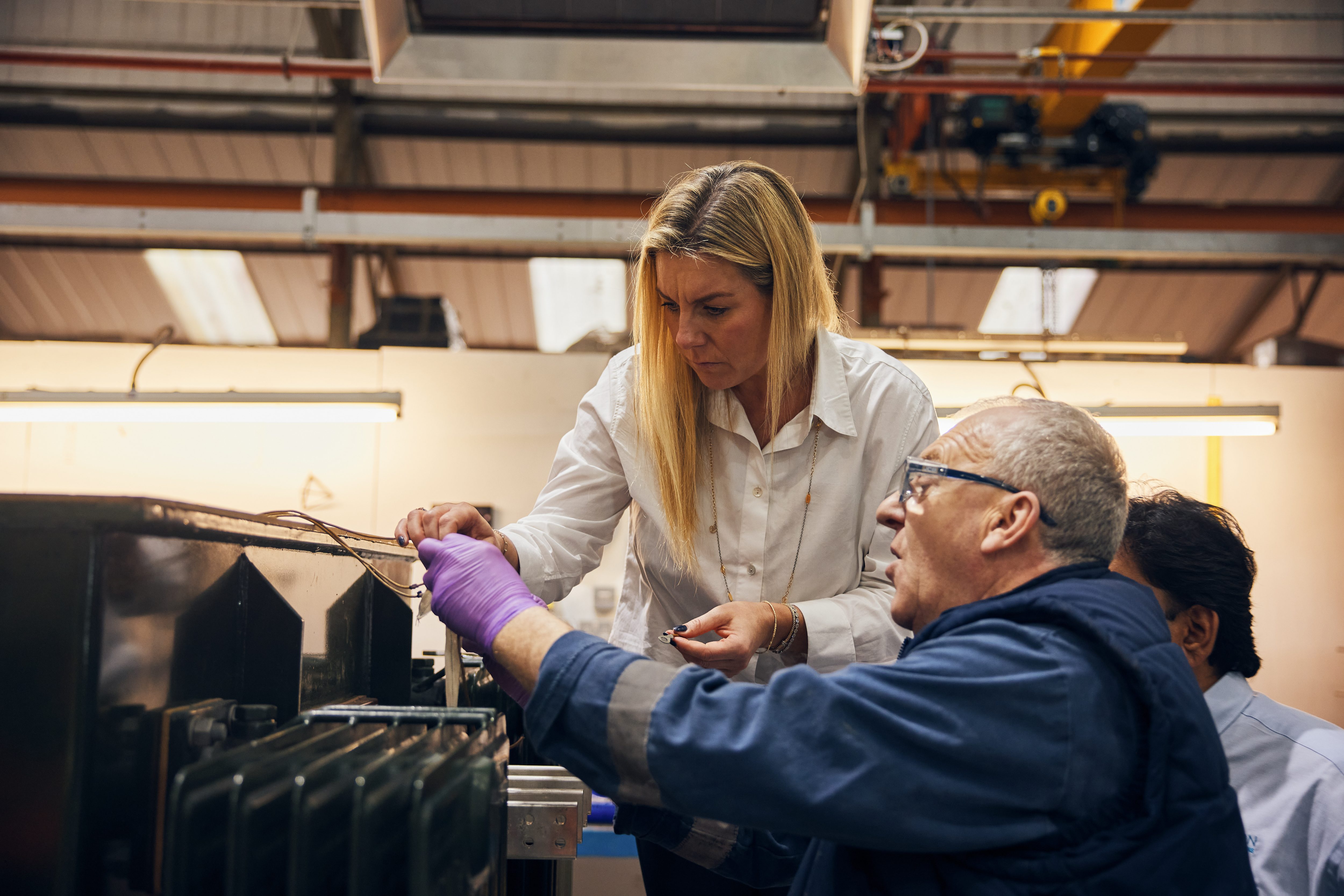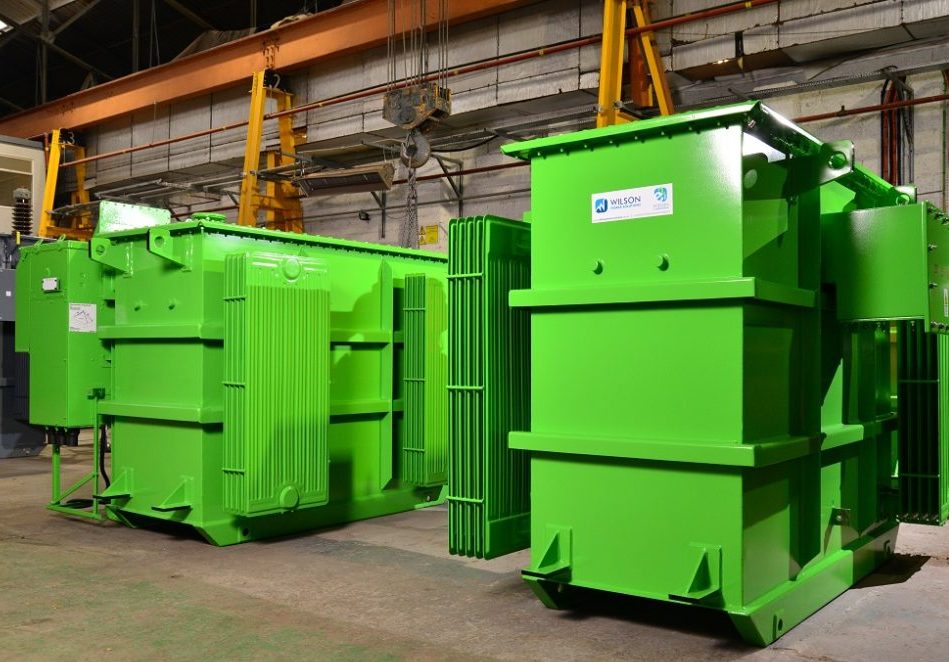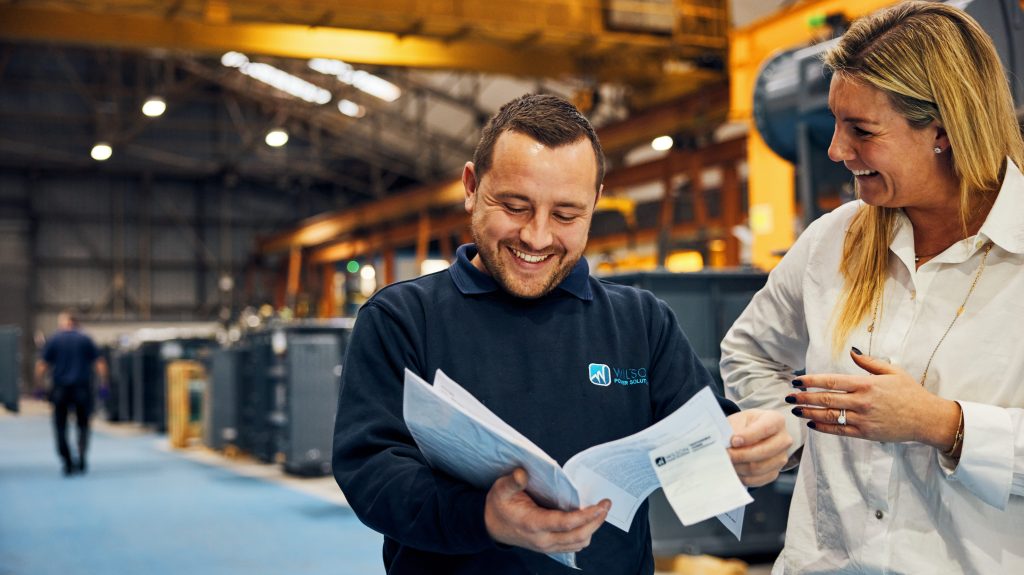‘When my son said he might go into the family business, I cried’
Erika Wilson’s journey with her family-owned company took a significant turn 18 years ago when they acquired a three-acre site in Chennai, India, with plans to construct a factory for producing electricity transformers. What began as an ambitious project for the Leeds-based company is now expanding; Wilson Power Solutions has purchased an additional 14 acres just 8km away to erect a 120,000 sq ft factory.
The new facility will manufacture Wilson’s state-of-the-art transformers, essential components in power grids that adjust voltage levels based on specific business requirements. For instance, a supermarket receives electricity at a medium voltage of 11,000 volts but requires a transformer to lower it to a usable 415 volts for lighting and refrigeration. Conversely, with battery energy storage applications, Wilson’s transformers will elevate the voltage up to 132,000 volts.
Wilson is committed to enhancing energy efficiency, with the latest transformer models reportedly capable of reducing carbon dioxide emissions by over 500 tonnes when companies replace older, less efficient units. Key clients include the University Hospital of South Manchester, Edinburgh University, Tesco, and Unilever, which utilize these transformers to cut energy consumption and operational expenses.
In India, production benefits from a robust and cost-effective labor market, while transformers destined for the UK undergo customization and finishing at Wilson’s headquarters. Despite the UK still representing a significant portion of sales, totaling £80 million last year, there has been rapid growth in India, with sales jumping to £20 million from only £5 million in 2023. The workforce of nearly 500 comprises 340 employees in Chennai.
Wilson reflects on the 18-year journey in India as a “labour of love,” noting that it has only recently become profitable. As the third generation to manage the company, which her grandfather Richard Wilson founded in 1946, she took over as majority shareholder in May 2021 after buying out her cousin Simon, who was her joint managing director for 13 years.
The 45-year-old attributes the original vision of the company’s Indian venture to her father, Colin, who stressed the importance of a reliable transformer supply chain, realizing that dependence on external suppliers could pose risks. The uptick in sales has been driven by a broader industry focus on energy efficiency and environmental sustainability, coupled with a strategic shift towards targeting the renewable energy sector in India. “We previously catered mainly to smaller industrial clients, where profit margins were limited,” she said.

Wilson points out that the company’s long-standing heritage provides a competitive edge in the UK market, enabling quicker delivery compared to newer firms while fostering long-term customer relationships. Wilson’s transformers have been pivotal in major projects like the Dogger Bank wind farm and Harmony Energy’s Pillswood, Europe’s largest battery storage installation, which wrapped up in August 2023, capable of powering 300,000 homes. Over the years, the scale of her orders has grown significantly; she recalled being thrilled at receiving an order for just three transformers.
Since beginning her career as an apprentice in 1997, when annual sales hovered around £10 million, Wilson has witnessed remarkable growth within the company. Initially uncertain about her career path, she briefly contemplated becoming a veterinarian before dismissing the idea due to a lack of interest in the work.
While her father was supportive of her decision to join the family business, there was no obligation to do so, as Wilson emphasized, “If you wish to join, that’s great; if not, that’s perfectly fine too.” During her apprenticeship, she gained hands-on experience that has fostered strong connections with both colleagues and clients. “Understanding how our products are made was crucial, especially as a woman in the industry; it’s vital to know what you’re selling.”
As her cousin Simon managed operations and technical aspects, Wilson focused on sales. Looking back, she admits that those early years presented formidable challenges, including the struggle for respect in a male-dominated industry. “It was incredibly tough not to be viewed merely as the boss’s daughter. I worked tirelessly to earn credibility,” she shared, adding that her father provided continuous support throughout her journey.
One particular memory stands out: addressing a disgruntled customer surrounded by ten male colleagues when she was in her early twenties. The experience left her in tears, prompting a comforting call to her father, who reassured her that this feeling would become more manageable with time.
Gaining respect in India was even more challenging, as many senior staff members initially struggled to accept Wilson as their female leader. However, her recent progress has started to change perceptions, with one senior staffer recognizing her success just last week, saying, “Bloody hell, Erika, you’ve done really well.”
Despite this progress, challenges remain. Recent budget measures proposed by Rachel Reeves, such as increased employer national insurance contributions, have raised operational costs, and Wilson is actively considering ways to mitigate these impacts without sacrificing employee benefits like wage increases or profit-sharing schemes.
Concerned about the new inheritance tax implications on generational transfers of business assets, Wilson expressed her frustration, noting how it complicates her father’s future plans. “While taxes are necessary, they should be reasonable—this change is shocking,” she concluded.

With aspirations to create a smoother path for future women leaders in the industry, Wilson recently hired 50 female graduate engineers in India. Additionally, she has been appointed the first female president of Beama, a trade association for energy infrastructure and systems, a milestone she hopes will empower young women entering the sector.
Looking ahead, there is potential for Wilson Power Solutions to transition into a fourth-generation family business if any of Wilson’s three sons, aged 14, 11, and 7, choose to join. The eldest, Archie, recently expressed interest in learning more about the business, leaving Wilson emotional: “When he said, ‘that sounds really cool. I might be interested,’ I couldn’t help but cry. It’s incredible to think about continuing this legacy after 78 years. I am immensely proud and feel very fortunate to be part of this journey.”




Post Comment